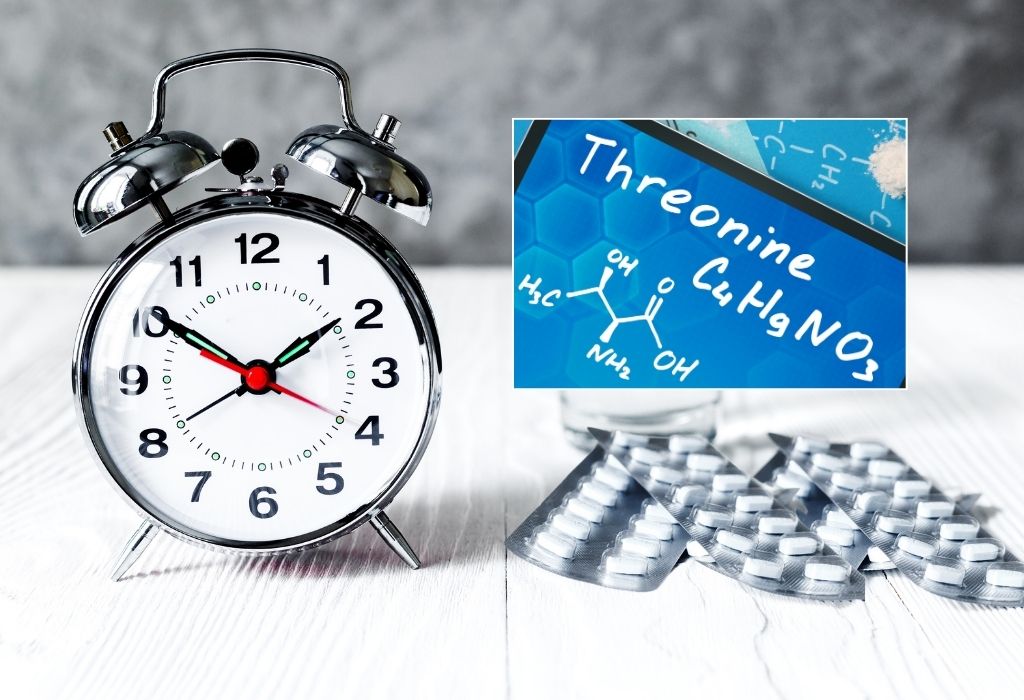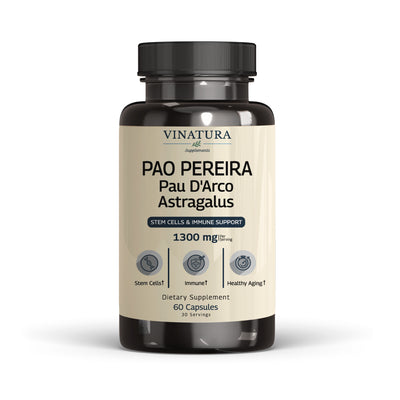
When Is The Best Time To Take L-Theanine? Is It Morning Or Night?
When do you usually take L-Theanine? Do you know the best time to Take L-Theanine? It’s important to understand that taking it at different times can provide different types of support. Some believe that taking L-theanine at night helps with relaxation and supports sleep. Taking it in the morning or before activities may enhance focus or reduce stress. Is this true? Let’s explore this in this article!
Before exploring further, please read the disclaimer located at the end of this webpage.
Key Takeaways
- L-Theanine is a natural amino acid in tea leaves, especially green tea and matcha.
- Taking L-Theanine before bed: Helps reduce stress, stimulates alpha brain waves, and supports sleep without the side effects of traditional sleeping pills.
- Taking L-Theanine in the morning: Improves focus, attention, and memory, especially when combined with caffeine.
- Taking L-Theanine before a workout: Combined with caffeine in pre-workout, it helps reduce caffeine’s side effects, enhances focus, and supports recovery after exercise.
What is L-Theanine?

L-Theanine is a natural amino acid primarily found in tea leaves, especially green, white, and matcha. If you love tea and regularly drink it, you've likely already been consuming L-Theanine. It’s the main compound that helps you feel relaxed and calm.
Scientifically, amino acids are the building blocks of proteins essential for all bodily functions. It’s important to note that L-Theanine is not an essential amino acid, meaning you don’t need it to survive, but its benefits are significant. L-Theanine has been shown to benefit the brain, promoting relaxation, reducing stress, and even improving sleep quality [1].
Nutrition expert Julia Zumpano states that L-Theanine helps the body relax without making you feel sleepy. You can get L-Theanine from tea or in supplement form, which is very convenient.
L-Theanine Benefits & Side Effects You Need to Know
L-Theanine provides numerous health benefits. These include antioxidant effects that help combat chronic diseases, neuroprotective properties, cardiovascular support to enhance blood circulation and overall heart health, regulation of metabolic processes, protection for the liver and kidneys, immune system strengthening, and support for maintaining a healthy weight [2]. These benefits contribute to both mental and physical well-being.

Mental Health Benefits of L-Theanine [3]:
- Helps you sleep better: If you often struggle with sleeplessness, L-Theanine helps relax your body, reduce stress, and improve deep sleep, especially when combined with natural substances like melatonin.
- Reduces stress: L-Theanine boosts the production of “happy” chemicals like serotonin and dopamine, making you feel calmer without making you tired during the day.
- Improves focus and memory: L-Theanine is a great choice when you need to work or study effectively. Combined with caffeine, it helps you stay alert and focused without causing jitteriness or stress.
A randomized, double-blind study on Japanese individuals aged 50-69 showed that L-Theanine can improve attention, working memory, and executive function. After a single dose, L-Theanine reduced reaction time and increased accuracy in cognitive tests. After 12 weeks of use, these positive effects were maintained, highlighting the potential of L-Theanine in supporting brain function in middle-aged and elderly individuals [4].
Moreover, L-Theanine easily crosses the blood-brain barrier and takes effect quickly, usually within 30 minutes after consumption. This makes L-Theanine ideal for those needing quick stress relief or a focus boost during high-performance tasks [5].
While L-Theanine is generally considered safe and has few side effects when taken in appropriate doses, consuming too much tea containing L-Theanine may cause some issues, such as headaches, insomnia, nausea, discomfort, and stomach pains. These symptoms are often caused more by other compounds in tea, such as caffeine, rather than by L-Theanine itself [3].
Also, note that L-Theanine is not recommended for pregnant or breastfeeding women, those allergic to green tea, or individuals taking certain medications such as sedatives or antidepressants.
When is the Best Time to Take L-Theanine?
You can track the characteristics, benefits, and drawbacks of each time you take L-Theanine in the table below:
|
Time |
Before Bedtime |
Morning or Throughout the Day |
Combined with Caffeine in Pre-Workout |
|
Purpose |
- Reduces stress and promotes relaxation - Supports deep sleep |
- Enhances focus - Improves memory - Increases energy. |
- Enhances focus and cognitive performance during exercise, supports the immune system effectively. |
|
Recommended Dosage |
250-450 mg/day (divided into 2 doses, 225 mg each) [6]. The safe dosage for L-Theanine is around 200-500 mg [1]. Supplements often use around 500 mg to optimize benefits. |
||
|
Benefits |
- Supports deep and easy sleep. |
- Improves focus and productivity. |
- Boosts energy without the "crash" after caffeine wears off. - Reduces stress, creating a state of alertness while staying relaxed. |
|
Drawbacks |
- Higher doses may cause nausea or discomfort. |
- Can cause drowsiness if taken in high doses during the day. |
- Too much caffeine may cause restlessness or insomnia. - May not be suitable for those who don't consume caffeine or have heart issues. |
|
Notes |
- Take 30-60 minutes before going to sleep. |
- Take in the morning or midday if you need calmness without feeling fatigued. |
- Take before workouts, combine with caffeine to reduce jitteriness. Avoid being sensitive to caffeine. |
Additionally, L-Theanine can be used on an empty stomach without causing discomfort, but since its effects can vary from person to person, it's best to experiment at different times to find what works best for you.
Taking L-Theanine Before Bed
The most common time to use L-Theanine is before going to bed. Thanks to its mood-enhancing properties, L-Theanine can help you fall asleep more easily and enjoy deeper sleep. Studies show that this effect may be due to L-Theanine's influence on brain chemicals, promoting relaxation by stimulating alpha waves in the brain without causing side effects like traditional sleep aids [7].

Taking L-Theanine in the Morning
The benefit of using L-theanine in the morning is that it can help improve your focus and cognitive abilities.
The study "Effects of L-Theanine on Cognitive Function in Middle-Aged and Older Subjects" showed that L-Theanine could help improve attention, memory, and executive skills in middle-aged and older adults. After using L-Theanine, participants had quicker reaction times in attention tests and scored higher in working memory tests [4].
Moreover, research has shown that it can improve cognitive function, especially when combined with caffeine [8]. If you feel these effects, using L-Theanine in the morning or throughout the day may be more effective.

Taking L-Theanine Pre-Workout
When combined with caffeine before a workout, L-Theanine can help smooth out the unwanted side effects of caffeine, such as stress and energy crashes when caffeine wears off. You may feel more focused without the "jitters" from caffeine. It helps improve workout performance, sustain energy, and reduce stress.
Research indicates that L-theanine can help improve athletes' immune systems after intense workouts. Specifically, L-Theanine lowers IL-10 levels and helps balance the immune system despite a decrease in certain immune cell numbers. Therefore, L-Theanine can support recovery and protect athletes' health [9].

Conclusion
L-Theanine is highly beneficial for reducing stress, improving sleep, and enhancing focus. Using L-Theanine at different times throughout the day can offer optimal effects: before bed to support sleep, in the morning to enhance cognitive abilities, and before workouts to boost focus and reduce caffeine side effects. While L-theanine is very safe when used properly, paying attention to dosage and personal health conditions is important to avoid unwanted side effects.
References
- [1] Clinic C. Here’s What You Need To Know About L-Theanine. Cleveland Clinic. Published July 19, 2023. Accessed November 23, 2024. https://health.clevelandclinic.org/l-theanine
- [2] Li MY, Liu HY, Wu DT, et al. L-Theanine: A Unique Functional Amino Acid in Tea (Camellia sinensis L.) With Multiple Health Benefits and Food Applications. Frontiers in Nutrition. 2022;9. doi:https://doi.org/10.3389/fnut.2022.853846
- [3] L-Theanine. Memorial Sloan Kettering Cancer Center. Published November 22, 2022. Accessed November 23, 2024. https://www.mskcc.org/cancer-care/integrative-medicine/herbs/l-theanine
- [4] Baba Y, Inagaki S, Nakagawa S, Kaneko T, Kobayashi M, Takanobu Takihara. Effects of l-Theanine on Cognitive Function in Middle-Aged and Older Subjects: A Randomized Placebo-Controlled Study. Journal of Medicinal Food. 2021;24(4):333-341. doi:https://doi.org/10.1089/jmf.2020.4803
- [5] Nobre. L-theanine, a natural constituent in tea, and its effect on mental state. Asia Pacific journal of clinical nutrition. 2024;17 Suppl 1. Accessed November 23, 2024. https://pubmed.ncbi.nlm.nih.gov/18296328/
- [6] https://www.facebook.com/Drugscom. L-Theanine Uses, Benefits & Dosage Herbal Database. Drugs.com. Published 2024. Accessed November 23, 2024. https://www.drugs.com/npp/l-theanine.html
- [7] Rao TP, Ozeki M, Juneja LR. In Search of a Safe Natural Sleep Aid. Journal of the American College of Nutrition. 2015;34(5):436-447. doi:https://doi.org/10.1080/07315724.2014.926153
- [8] L-theanine & Your Brain | Cognitive Vitality | Alzheimer’s Drug Discovery Foundation. Alzdiscovery.org. Published 2017. Accessed November 23, 2024. https://www.alzdiscovery.org/cognitive-vitality/ratings/l-theanine
- [9] Juszkiewicz A, Glapa A, Basta P, et al. The effect of L-theanine supplementation on the immune system of athletes exposed to strenuous physical exercise. Journal of the International Society of Sports Nutrition. 2019;16(1). doi:https://doi.org/10.1186/s12970-019-0274-y
Author

Product Disclaimer
The dietary supplement products mentioned on this website are formulated based on scientific research and adhere to FDA guidelines for dietary supplements. However, the content of the articles has not been evaluated by the Food and Drug Administration (FDA) and is not intended to promote or endorse any specific product. Any products sold on this website are not intended to diagnose, treat, cure, or prevent any disease.
Opinions and Endorsements
Any claims, statements, or opinions expressed in the articles are those of the author(s) and do not necessarily reflect the views or opinions of the manufacturers of the dietary supplement products. The products sold on this website are separate from the content of the articles and are not directly endorsed or associated with the information presented here.
Liability Disclaimer
The author(s) of the articles, website, and manufacturers of the dietary supplement products do not assume any liability for any potential consequences arising from the use of the information provided in the articles. It is recommended that individuals consult with a qualified healthcare professional before making any dietary or lifestyle changes, including the use of dietary supplements.
Product Usage
Please refer to the product labels and packaging for specific usage instructions and guidelines for the dietary supplement products sold on this website.
Customer Support
For any concerns or questions regarding the dietary supplement products, please contact our customer support team, who will be more than happy to assist you.





Leave a Comment
Be the first to comment.
What do you think?